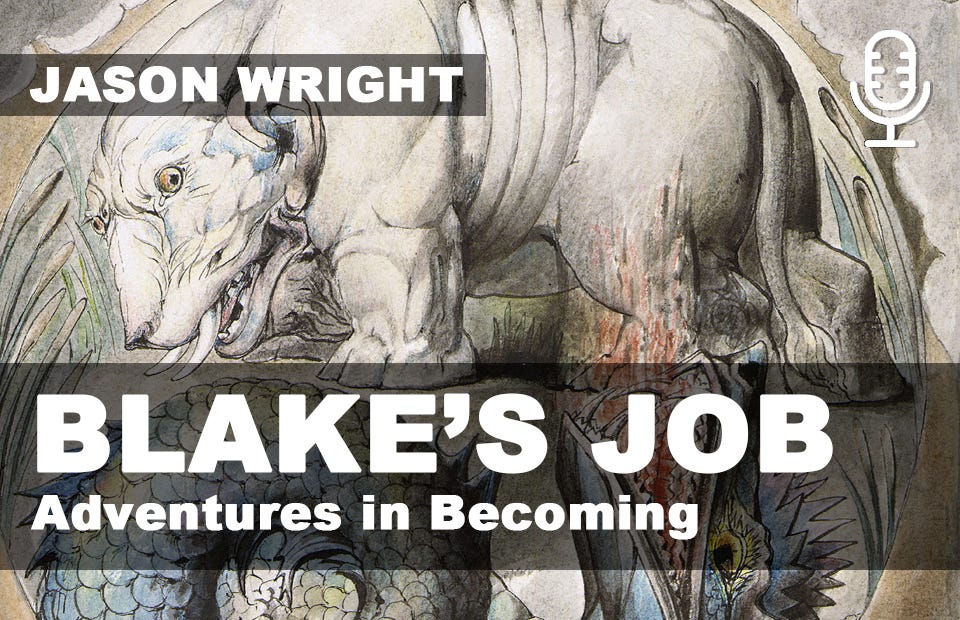“The problem with oil is, you are processing dinosaur karma.”
“People can be desperate, particularly when coming to the end of an addiction. It is absolutely desolate and desperate, while destructive, rageful early-life forces – much, much bigger than anything that we can really imagine – are at war in our soul. Death seems like really the only choice. But you know somewhere that you want to live, so what you do is you anaesthetise it. Heroin does it brilliant. You vomit a bit and can't move. And nothing matters. Absolutely nothing matters.”
Jason Wright
Jason Wright is a transpersonal and psychoanalytic psychotherapist. For twelve years, he was Clinical Director and CEO for the CORE Trust holistic addictions charity, as well as a manager and director in theatres. He has since founded Number 42, a group psychotherapy practice in Central London, UK.
In this episode of the Traveller in the Evening podcast, Jason Wright talks about his work with the singer and songwriter Jackie Leven in the CORE Trust, his work as a theatre director and Jungian psychoanalyst, and in particular he is talking about his new book, Blake’s Job: Adventures in Becoming, in which he applies his Jungian perspective to an analysis of Blake’s treatment of the myth of Job.
Blake’s Job: Adventures in Becoming
Publisher’s description
“In this unique book, Jason Wright analyses William, Blake's Illustrations of the Book of Job and shows their relevance in clinical psychoanalysis and psychotherapy with groups and individuals, especially while working with patients who have experienced trauma and addiction.
Drawing on decades of work in the field, this book sees Wright offer sensitive guidance to practitioners dealing with client experiences of change through the lens of addiction and offers useful insight to the lay reader. Throughout the chapters, Wright studies each illustration in depth and shows how they chart the breakdown of Job's life into a state of despair. Twinning a clinical vignette with each plate, Wright shows how these depictions can be directly applied to issues faced in contemporary analysis, therapy and addiction recovery. From Job's dissolution to his eventual salvation, Wright insightfully maps the process of change from a place of destitution to one of redemption and hope set in the context of the group. He expertly brings Blakean theory into the 21ˢᵗ century by looking at contemporary experience such as the impact of the 2005 London bombings, as well as looking at the importance of community, collective experience and self-identity when seeking recovery. Throughout, Wright draws inspiration from eminent analysts such as Bion, Winnicott and Hillman, while also looking to Jung, Bohm and Whitehead to support his theories on the new way of being he proposes: a collective dynamic shift from a consciousness of exploitation to a consciousness of resonance.
This book will be of great interest to psychoanalysts, psychotherapists and mental health professionals working in addiction recovery, as well as those interested in the work of Blake and its continued importance in the present day.”
AI summary of the discussion
The conversation between Andy Wilson, from The Traveller in the Evening podcast, and Jason Wright, a psychoanalytic psychotherapist and theatre director, covered various aspects. Jason's extensive journey from the theatre to psychotherapy stemmed from his interest in becoming a Jungian analyst. This path led him to establish a Group Psychotherapy practice, where he provided structured programs to aid individuals through their journey towards recovery.
The significance of the relationship between theatre and psychotherapy lies in the parallels between theatrical and psychotherapeutic scenarios, enhancing therapeutic approaches. Jason's new book, "Blake's Job: Adventures in Becoming," focuses on the concept of change in the relationship between the individual and the world. It triumphs in illuminating hope while applying a Jungian perspective to the story of Job in the Old Testament.
Moreover, Jason's approach to psychotherapy involves blending mythology and ecological philosophy in interpreting the Book of Job. His work is influenced by a holistic approach, drawing from a range of psychotherapeutic techniques and models, emphasizing the importance of integrating ecological philosophy and mythological studies into the therapeutic process.
Sharing insights from his book, Jason discusses the transformation that Job undertakes and its relevance to individuals grappling with inner conflict, nurturing hope, and reconciling with chaos. His book resonates with therapists, analysts, and individuals interested in exploring the depths of their psyche and issues concerning the ecological crisis, offering a unique perspective on engaging with the complexities of human experiences and the dynamics of transformation.















Blake's Job: Adventures in Becoming